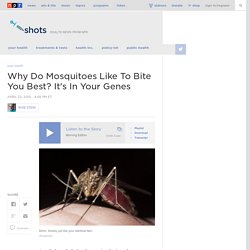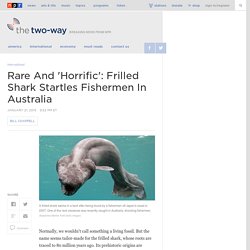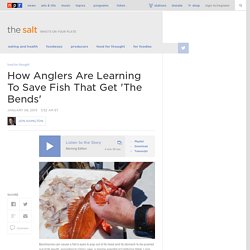

Why Do Mosquitoes Like To Bite You Best? It's In Your Genes. Mmm.

Smells just like your identical twin. iStockphoto hide caption itoggle caption iStockphoto Mmm. Smells just like your identical twin. iStockphoto A study that asked a few dozen pairs of twins to brave a swarm of hungry mosquitoes has revealed another clue to the cluster of reasons the insects are more attracted to some people than others: Genes matter. "Twins that were identical were very similar in their level of attractiveness to mosquitoes, and twins that were [not identical] were very different in their level of attractiveness," says James Logan, a medical entomologist at the London School of Hygiene & Tropical Medicine who led the study. It's long been known that female mosquitoes, which need the proteins in a blood meal to make their eggs, are more drawn to certain people than others, and that various factors are involved. In their own previous research, Logan and his colleagues found that people who are bitten less frequently seem to "smell differently to mosquitoes.
" Rare And 'Horrific': Frilled Shark Startles Fishermen In Australia. A frilled shark swims in a tank after being found by a fisherman off Japan's coast in 2007.

One of the rare creatures was recently caught in Australia, shocking fishermen. Awashima Marine Park/Getty Images hide caption itoggle caption Awashima Marine Park/Getty Images A frilled shark swims in a tank after being found by a fisherman off Japan's coast in 2007. One of the rare creatures was recently caught in Australia, shocking fishermen. Awashima Marine Park/Getty Images Normally, we wouldn't call something a living fossil. In the most recent of those 80 million years, the frilled shark has been scaring the bejeezus out of humans who pull it out of the water to find an animal with rows of needle-like teeth in a gaping mouth at the front of its head. How Anglers Are Learning To Save Fish That Get 'The Bends' Barotrauma can cause a fish's eyes to pop out of its head and its stomach to be pushed out of its mouth, according to Chris Lowe, a marine scientist at California State, Long Beach.

Jon Hamilton/NPR hide caption itoggle caption Jon Hamilton/NPR Barotrauma can cause a fish's eyes to pop out of its head and its stomach to be pushed out of its mouth, according to Chris Lowe, a marine scientist at California State, Long Beach. Jon Hamilton/NPR Each year, sport fishermen unintentionally kill millions of deep-water fish they don't want or can't keep. The problem occurs in fish that have a swim bladder, an internal balloon that helps them control their buoyancy. Fish experiencing barotrauma are often unable to swim, and they look like they're dead — but they're not. 'Murdersquishing' Them To Death: How Little Bees Take On Enormous Hornets : Krulwich Wonders... I know, I know.

You have Putin to worry about, ISIS to worry about, Britain's near breaking, Washington's broken, and the globe keeps getting warmer — so why bring up Japanese giant hornets? You have worries enough. But I can't help myself. I've got to mention these hornets because, as bad as they are — and they are very, very bad ... 6 Air Purifying House Plants « on Life and Livingness – by Tom. 1.

Bamboo Palm: According to NASA, it removes formaldahyde and is also said to act as a natural humidifier. 2. Snake Plant: Found by NASA to absorb nitrogen oxides and formaldahyde. 3. Nature's Pharmacy. In recent years, newspapers have run countless stories of athletes using steroids to enhance their performance on the track or field and to speed recovery from injury.

But steroids are not illicit concoctions prepared on the sly in hidden laboratories. Rather, they are natural compounds, manufactured largely by biochemical companies to treat bona fide medical conditions including arthritis and sex hormone deficiency. You might be surprised to learn that the bases for steroids and many other natural compounds used to help treat human illnesses originate in plants. Spider Versus Snake. Six-Legged Giant Finds Secret Hideaway, Hides For 80 Years : Krulwich Wonders... No, this isn't a make-believe place.

It's real. They call it "Ball's Pyramid. " It's what's left of an old volcano that emerged from the sea about 7 million years ago. A British naval officer named Ball was the first European to see it in 1788. It sits off Australia, in the South Pacific. What's more, for years this place had a secret. A satellite view of Ball's Pyramid in the Tasman Sea off the eastern coast of Australia. Toggle caption Google Maps Here's the story: About 13 miles from this spindle of rock, there's a bigger island, called Lord Howe Island.
On Lord Howe, there used to be an insect, famous for being big. Then one day in 1918, a supply ship, the S.S. Totally gone. There was a rumor, though. Some climbers scaling Ball's Pyramid in the 1960s said they'd seen a few stick insect corpses lying on the rocks that looked "recently dead. " Climbing The Pyramid.